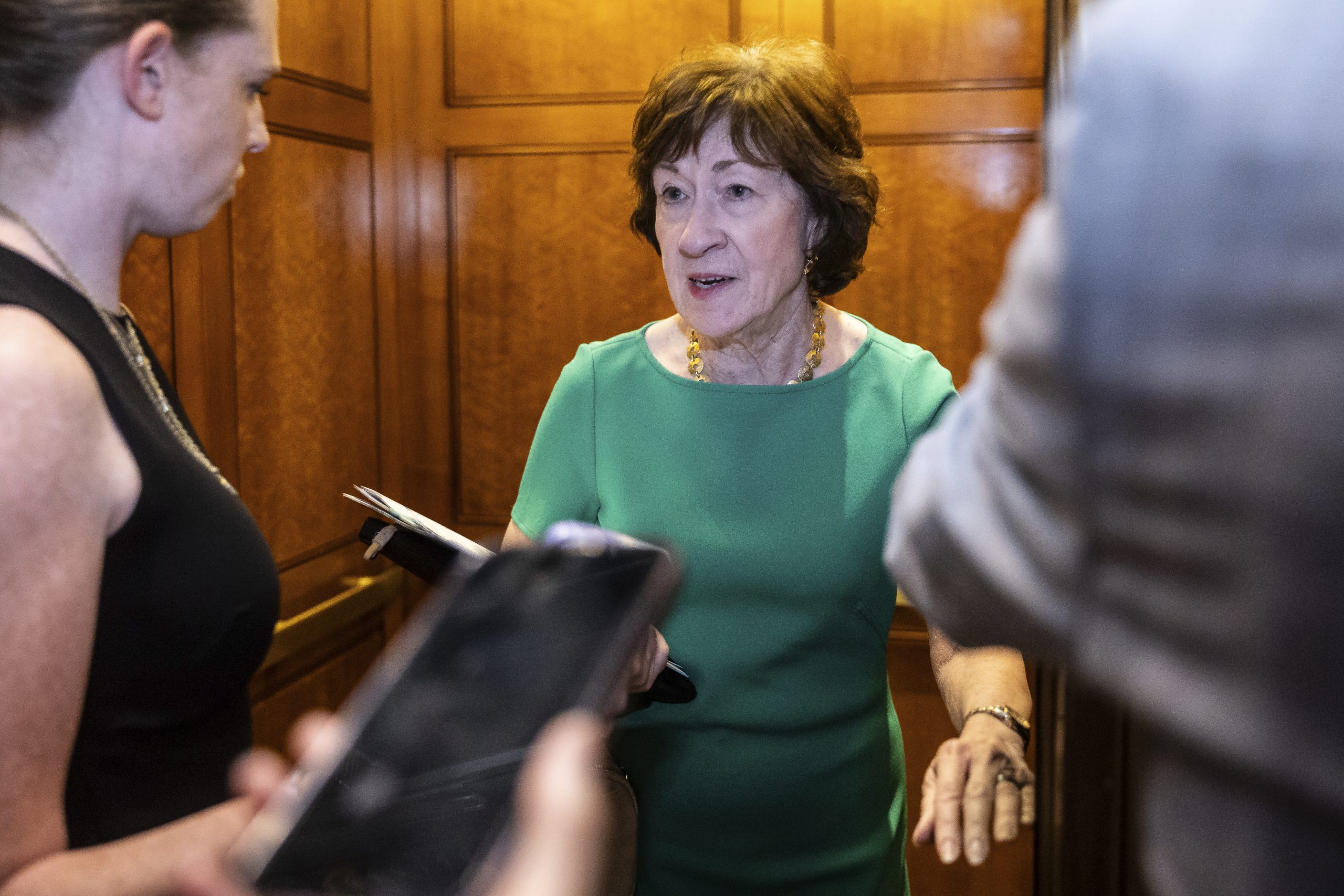Senators scrambled Thursday to avoid an impasse that is threatening to scuttle one of the 12 annual funding bills and cast a pall over the whole bipartisan appropriations process.
Senate Appropriations Chair Susan Collins (R-Maine) put the panel into an unusual extended recess amid negotiations over resolving the dispute, which is rooted in President Donald Trump’s decision to override a congressionally approved plan to move FBI headquarters to suburban Maryland and instead keep the agency in downtown Washington.
Sen. Chris Van Hollen, a Maryland Democrat, introduced an amendment to the fiscal 2026 Commerce-Justice-Science funding bill barring the Trump administration from using headquarters funding for anything other than the original plan. It was adopted after GOP Sen. Lisa Murkowski of Alaska crossed party lines to support it.
The prospect that the bill might countermand a Trump administration priority subsequently caused several GOP senators to withdraw their support for the underlying bill. Sen. Jerry Moran (R-Kan.), who chairs the subcommittee overseeing the bill, said it was “none of our committee’s business” where the FBI headquarters goes: “We don’t get to choose sites, and it’s certainly not the committee’s jurisdiction of Commerce, Justice and Science.”
Attempts at pursuing compromise language on the FBI headquarters matter failed, prompting Collins to call what she said would be a “very long recess.” The panel is not expected to reconvene before next week.
“I think it’s better we withdraw the bill for now than watch this bill go down,” she said.
The blowup exasperated some Democrats on the panel, who questioned why the Republican majority could not accept Van Hollen’s provision. “Because there was a bipartisan amendment adopted we’re going to tank this bill?” asked Hawaii Sen. Brian Schatz.
Others expressed confidence the issue would ultimately get settled.
“I honestly think we’ll be able to resolve it,” said Washington Sen. Patty Murray, the panel’s top Democrat. “We’ve always been able to work out issues.”
Sen. Tammy Baldwin (D-Wis.) said she hoped there would be “earnest work” on coming up with a fix before the panel’s next markup: “It’s a big issue, it’s a serious issue, but there is bipartisan agreement on the balance of the bill.”
Commerce-Justice-Science is not considered to be among the most contentious of the 12 yearly appropriations bills, so a partisan impasse here would bode poorly for the prospects of bipartisan agreement on more controversial bills dealing with health agencies and immigration enforcement, among other issues.
The dispute also comes against the backdrop of rising tensions over government spending exacerbated by the Trump administration’s moves to claw back billions of dollars in current-year funding and threatening to withhold, or “impound,” many billions more. Democrats and some Republicans consider it a direct attack on Congress’s constitutional “power of the purse.”
Collins said after recessing that hearing that her committee is “actually in good shape” on advancing fiscal 2026 funding bills. She added that she was “hopeful” the stalled bill could be revived but “we’ve got other bills we can go on to.”
Sen. John Hoeven (R-N.D.) said the FBI blowup was “not necessarily” a fatal roadblock, suggesting the provision could be stripped out with a vote on the Senate floor — “as long as people are willing to let the political process proceed.”
